
by Purnima Ramakrishnan | Apr 11, 2014 | 2014, Brazil, Human Rights, Humanitarian, Humanity, Purnima, Social Equality, Social Good, The Alchemist, World Moms Blog, World Voice
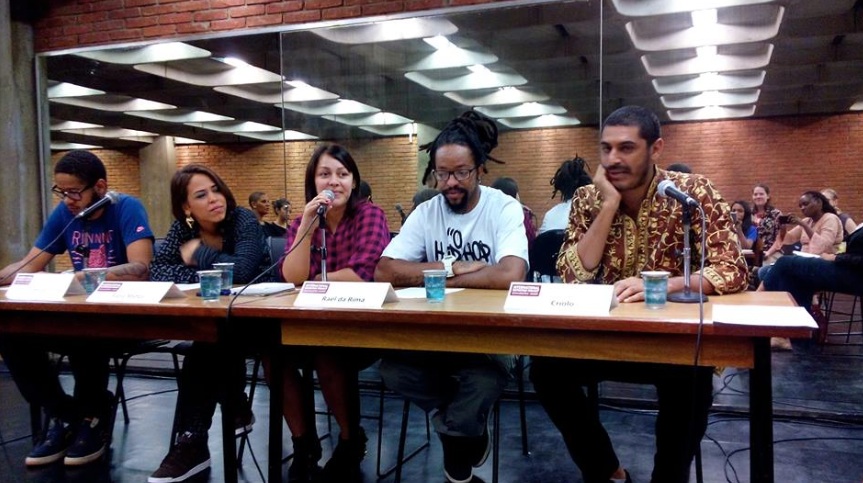
Centro Cultural Sao Paulo
Our visit to Sao Paulo with The International Reporting Project was coming to a close. After a very hectic day of Community heath visits and chatting with doctors, nurses, and community health workers, we just had to do something very cool. And what nicer thing than to rap our way into it?
We met the awesome International acclaimed Brazilian rap group at Centro Cultural Sao Paulo, and it was a great honor to be in their presence.
In the 1990s a musical style known as rap consciencia (socially conscious rap) originated in Brazil. These days it is making huge waves and improving the lives of people by making them socially conscious of their choices, their lifestyles, rights, issues, and gently coaxes them to dream of things which generally are taboo to dream about, for the Afro-Brazilian ethnicity.
Criolo was 11 years old when he started writing lyrics and now he has chart busters in London, New York and Paris. At the tender age of 11 he wrote about social issues. Social inequality is a major problem in Brazil. There is still prejudice across Brazil.
Criolo said, “there are so many ways to live. To wake up, to eat, to get to work and then get some money and then to eat again, is one way. If that is to live, it means people sell themselves for some food and money. That is just a process. Stop it. Live life. Let us talk about ourselves, our passions and aspirations and our joys.”
Rael da Rima was 11 when his music band used to talk about social injustice, racism, and equality to all. He talked a little bit about his personal life, and how rap music changed his life, and the lives of people living around him.
He said, “I give you an analogy for the social inequalities in Sao Paulo. Some people use this mineral water (indicating the drinking water on the table) to wash their BMW cars, and yet some do not have access to clean drinking water. Sao Paulo is a city of extreme contrasts. I sing so that people consciously become aware of their own lives and strive to improve it.”
Rael singing of his passion for rap music:
Emicida says, “When I was young, to get into college was not something youngsters would think about. Just to let the day go by was an accomplishment. Nowadays when I walk through the favela(slum) I grew up in, I am so happy to see the youngsters talking about their dreams of being in college and to get a ‘real’ job. When slavery was abolished, it was both a curse and boon. A curse because people were pushed into poverty and violence with no support system, a lot of confusion, and no real understanding of what was happening in society or the political and economic scenario of the country. My rap is to inspire people to talk about their dreams, how to get out of social inequalities and to be truly free. In everyone there is a human being and I wish for each one to know it. Through rap music, the magic of communication is established, and people are inspired to know themselves as such.”
Emicida singing for World Moms Blog
Flora Matos was 18 when she decided to move to Sao Paulo from Brasilia. She sings so people are free of sexual prejudice. She says her music always speaks of love – love for all kinds of people – love for humanity as a whole and breaking anything which could make people hate each other.
Flora Matos singing of love – love for people, passions, and love for all of humanity
These musicians and others like them are not people who sign on big labels or crave all of the fame and popularity. They just want justice, recognition of the minorities as human beings, and some peace for their community. And they do it through rap music.
They sing about poverty, prejudice, abuses of various types, about the blacks and whites in Brazil, and the classes. Flora said, all her numbers are characterized by experiences, either her own, a friends or someone she knows about. So this idea of communication which Emicida says – that is the magical bond – is established. This communication through music is not just passing of information or ideas or activism – it is an expression to bond humanity, a gentle prod to awake, and be aware. So through the actual performance the listeners carry back this vital element of being part of the movement.
So even though they do not directly change anything, or may not be able to give statistics and figures, they change attitudes, and invest in developing agents of change – which is a very vital thing to forge a developing society, progressing towards success.
I am not a big fan of music, not even Indian music, but that day I promised Criolo I would look him up on Youtube. He was mildly surprised to know that I came for a meeting with rap artists when I was not into music at all. I explained that it was because I learnt they worked for social causes through music, and I was interested in that. He wished me luck and said he would look up World Moms Blog too and we parted.
Just for fun, I also recorded some street musicians the other day in Sao Paulo’s Avenida Paulista, one of the poshest locality in Sao Paulo. I cant help sharing the below one.
This is an original post to World Moms Blog by Purnima Ramakrishnan, our Indian mother writing from Chennai, India. Her contributions to the World Moms Blog can be found here. She also rambles at The Alchemist’s Blog.
Photo credit to the author.
Purnima Ramakrishnan is a fellow of Journalism with the International Reporting Project (IRP), reporting from Sao Paulo, Brazil. Follow on Twitter at #BrazilMDGs

by Purnima Ramakrishnan | Apr 8, 2014 | 2014, Brazil, Health, Humanitarian, Purnima, The Alchemist, World Moms Blog
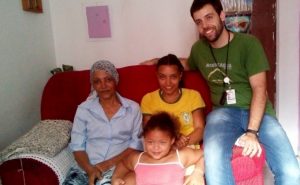
Raimunda with her family and Dr. Rodrigo D’Aurea from the Community Health Center
Raimunda is a 46-year-old mother to two beautiful daughters aged 19 years old and 7 years old. She sadly has lungs cancer, stage-4, has undergone chemotherapy, and now is in palliative care. Her family physician, Dr. Rodrigo D’Aurea took us to her house yesterday in a locality called Boa Vista in the suburbs of Sao Paulo which has a population of 20,000 people. She was diagnosed almost a year and half ago and she was already in stage-4. She has a very aggressive form of lung cancer. She used to smoke a long time ago, but has kicked the habit for more than a decade. Her husband used to contribute to the family’s upkeep until her elder daughter was 18 years old, but in the past year, he has stopped doing it. She has some pension from her retirement and she crochets for a living. You can see the beautiful white crochets folded on her couch.
Her doctor says, there are four things he has to take care of – firstly the physiological aspect of her body having cancer, secondly her psychological acceptance, how she deals with it, and accepts it emotionally, thirdly her dependents (here her daughters who will need to be adopted after her time), and fourthly he has also spoken to her priest and arranged for things. It made us a bit sad listening to it, this way. But hold on, there is more to this article. Melody, Julianna (our translator), and I accompanied Dr. Rodrigo D’Aurea and the health care worker on a work visit.
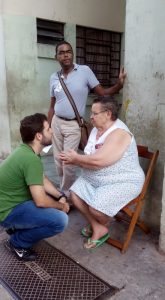
Dr. Rodrigo D’Aurea being greeted by yet one of his elderly patients on the street. The community health worker looking on.
I am here all the way from India as an International Reporting Project Fellow, reporting about the Public Health Center’s community visits. Here, a team consisting of a doctor, a nurse, two nursing assistants, a community health worker visits their patients in their assigned locality (Boa Vista here) and speak to the people and treat them. As we walked along the streets, I could see every resident saying “Ola” (Hi/Hello) and “Tudu Bem” (How are you) to Dr. Rodgrigo. It looked like he was a friend, a son, a brother to everyone whom we passed along in the streets.
The USB (Unidade Basica de Saude) which basically means Unit of Primary Health located in Jardin Boa Vista (Garden of Boa Vista) takes care of its 20,000 residents. It is almost like a hospital with about ten consultation rooms, a dentistry, Vaccination room, first aid and emergency room, a small nurses’ station, and some admin rooms. It is elegant, clean and hygienic. The doctors and health workers cater to not just the medical needs of the residents, but to their emotional and family needs.
Because here social problems have a big impact on the health problems of residents.
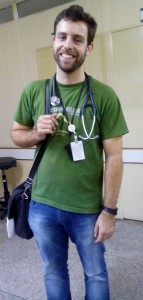
Dr. Rodrigo D’Aurea leaving for the day after giving us a tour of the clinic and the community
Dr. Rodrigo mentioned that he is more like a psychologist, counselor and a family doctor, rolled into one. He knows more about all the residents than anybody else. He feels morally responsible and I could feel the pride in his voice when he spoke about them.
He owns the hearts of the residents, is all I can say.
This Community Health initiative is a wonderful one and it is funded by the SUS. (Sistema Único de Saúde) which means the Unified Health System. It is Brazil’s publicly funded health care system. SUS was created after the Brazilian Constitution of 1988, which assured that health care is a “right of all and an obligation of the State”. Prior to that, only people who contributed to social security were able to receive health care. The creation of SUS was important in the sense that more than 80% of the Brazilian population depend on it to receive medical treatment.
These public health units focus mainly on the family health instead of the health of a single individual. It is interrelated. A family’s social, mental, and emotional well-being is directly related to the physical health of the individuals. It taps into different knowledge and practices from the perspective of a holistic and problem solving approach, enabling the creation of bonds of trust through ethics, commitment, and respect. They have different specialists visiting them often and on request. They also refer cases to different units like oncology, gynecology, and such for detailed assistance.
All the population of Brazil is covered to receive primary health care. It does not matter if you have insurance or not, if you are covered under your social security or not. Brazil is on the road to achieve a 100% health coverage. This is something the other developing nations in the world have to carefully watch and learn from.
This is an original post to World Moms Blog by Purnima Ramakrishnan, our Indian mother writing from Chennai, India. Her contributions to the World Moms Blog can be found here. She also rambles at The Alchemist’s Blog.
Photo credit to the author.
Purnima Ramakrishnan is a fellow of Journalism with the International Reporting Project (IRP), reporting from Sao Paulo, Brazil.

by Purnima Ramakrishnan | Mar 11, 2014 | 2014, Brazil, Humanitarian, International, Poverty, Purnima, Social Good, The Alchemist, Travel, World Moms Blog, World Voice, Writing
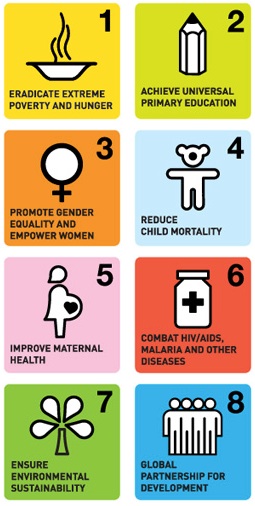
United Nations Foundation
Sometime back I wrote in my personal blog that I am ‘NOT’ a globe-trotting mama. But here I am getting ready for my next adventure all over Brazil.
I am honored and proud to officially announce that I have been selected to receive a fellowship in Journalism and will be reporting from Brazil for the International Reporting Project as part of the John Hopkins School of Advanced International Studies. I shall be reporting about reduction of poverty and hunger in Brazil, and how it has embraced the Millennium Development Goals to improve the lives of its citizens.
Here at World Moms Blog, working for the MDGs has been something close to our hearts. And hence this trip is also very close to my heart where I will be learning so much and sharing what we do here at World Moms Blog through media and through the power of mothers. Having launched the Moms4MDGs campaign in Chicago, during BlogHer13 and following up very closely and working with it has made me feel very passionate about this cause.
As I brace myself for a hectic fortnight in the 2nd and 3rd week of April, where we may go back-packing and camping in rural and sub-urban Brazil, one thought comes to my mind – What is it that I am going to achieve, apart from the learning and all the anticipated fun? I really don’t know that yet.
I only know that this trip is going to be very special in so many ways.
I have written posts about the 8 MDGs in the past about a few topics including Environment, Eco-feminism, reducing Infant mortality rate, child-health, Social issues and empowerment of girl child and women. I now also look forward to learn more about reduction of health, poverty, hunger and improvement of the lifestyle of citizens by the sustained effort of various individuals and organizations.
This trip is going to take me places very rugged and rustic like rural villages where connectivity could be difficult, I understand. It makes me a bit concerned, honestly. Not being in touch with my family, especially my son every single moment is going to be difficult. I leave him in good care and support; however this phase sure will be tricky to cope.
We do not have a detailed itinerary yet, but I know that it is going to be exciting. Exciting? Yes, at times, IRP fellows have also met with Presidents/Prime Ministers of the countries they visit. So, it is just not back-packing and camping and reporting from the villages. It is also meeting with the decision makers and understanding how the entire system works.
Anybody want to guess what came in the mail yesterday? A luggage tag featuring the WMB lady, just in time for my travels. Jen, Thank you! I love this so much and as I pack my bags for Brazil, this is something which will always remind me of the love and comradeship of this beautiful group.
Please look forward to my everyday thoughts and stories, and possibly photographs, video posts, blog posts, slideshows, updates on social networks, assuming I have a good internet connection.
You can track my posts from this trip at #Moms4MDGs.You can track all posts from this trip using #BrazilMDGs.
I will be tweeting from both @WorldMomsBlog and @Puma_Vinod. I will vicariously be posting on Facebook both on my personal profile and World Moms Blog profile too.
Please feel free to ask me any questions and leave your comments about this trip. I would also love to read any of your insights on Brazil.
This is the first of the many posts credited to the International Reporting Project (IRP), as part of my reporting from Brazil on this fellowship.
Photo credit United Nations Foundation.
This is an original post written by Purnima Ramakrishnan for World Moms Blog.
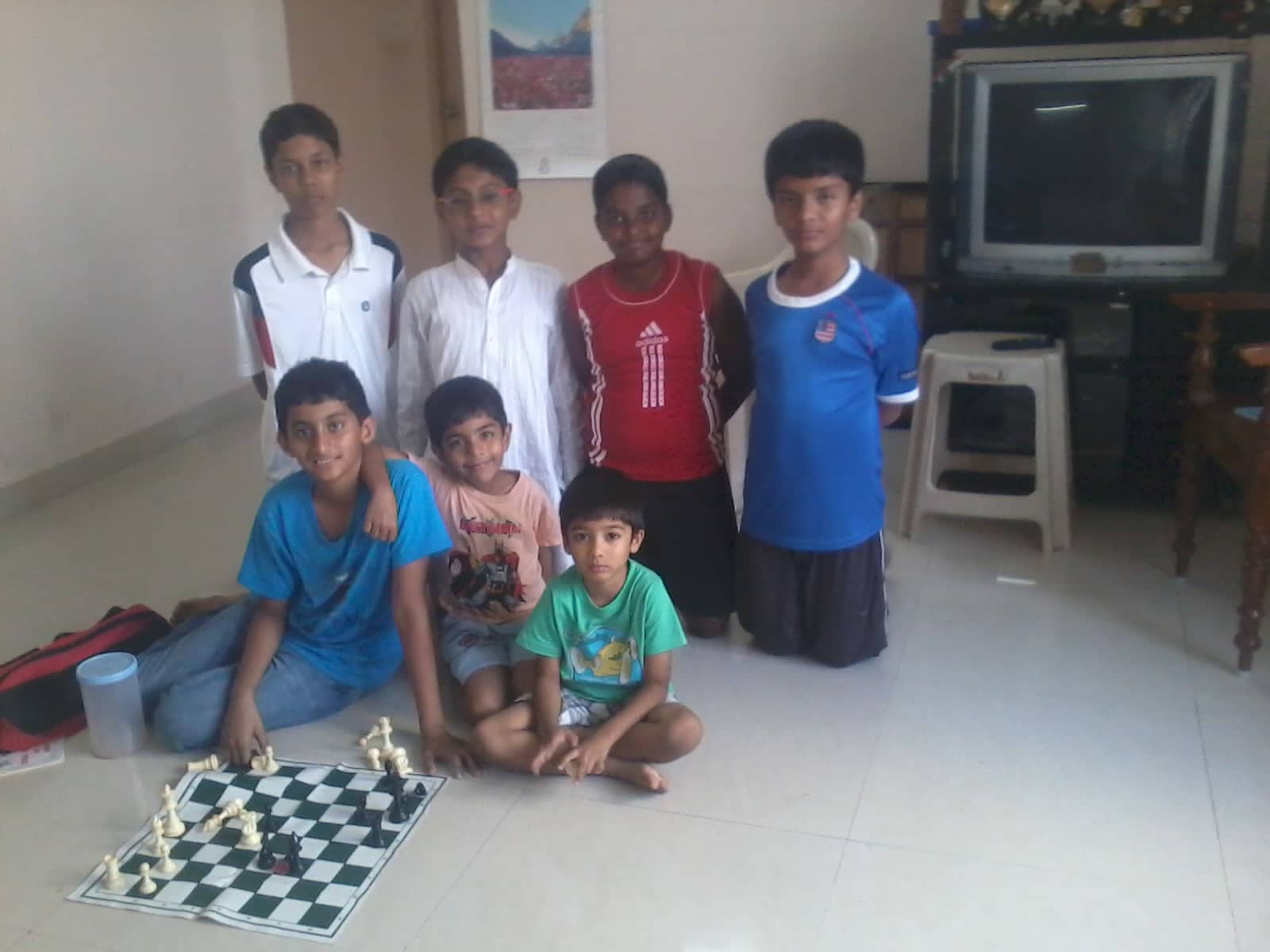
by Purnima Ramakrishnan | Jan 23, 2014 | India, Older Children, Purnima, Sports, The Alchemist, World Motherhood, Younger Children
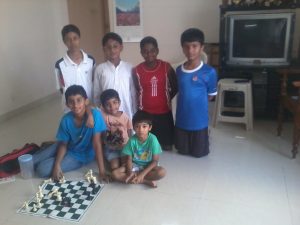
The boys after a game of chess
It all started with one eleven year old boy’s boredom. He wondered how to keep himself occupied in the holidays which were to come the next week. He talked about it to his friend, and they decided to coach the younger kids in their community. And the idea evolved. Today, Ashram Avenue Sports Club, the one in my community which has over 20 kids, some coaches, some students, some both, in various types of sports have joined in the plan.
So, in my community there is a club, started by tweens. They coach the younger kids (aged from 5 to 10) in football, cricket, badminton, chess, art and crafts. They created a website, a Facebook page. They even collected money from all parents, and appointed a treasurer and are keeping balance ledgers. This money is utilized to buy supplies like balls, sport kits, first aid, etc.
There are two adults who are administrators, keeping an eye on everything they do. Once in a while they check the account books, talk to parents and just about do whatever needs immediate attention. My house is the venue for the chess coaching. An empty plot nearby is the ground for the outdoor games. Yes, they sought permission from the plot owner, and he was kind enough to rent it out to these budding idea machines for no cost at all.
So, during the weekend and holidays, they have a schedule which involves all these games with breaks in between.
I am so happy! That is the point of this post.
The parents are happy with this arrangement. There are a lot of problems, too, but everyone likes this idea. And hence, we are constantly evolving and as and when we face any issues, we try to sort it out among ourselves.
No, these kids are not great coaches. They are not training the younger kids to become Olympic Players either. For that, a few other children are enrolled in professional sports schools. But this is for keeping the children happily engaged and in a good and structured manner.
I do not know how long this will last. It has lasted now for about a month. And it has constantly been evolving into something more meaningful and more effective. This is a good community where I am living. Everybody almost knows everybody else. It has its own positives and negatives. But so far the positives have outweighed the negatives.
As a mother, what does this mean to me? Personally, my son was not an outdoorsy type of person. He was more into intellectual things and not into exploring sports and activities. Well, there is nothing wrong in that, because everyone has their own interests and abilities. But this initiative has made him explore sports. He is familiar with all sports but now he is interested in playing, too.
I do not expect him to excel in sports. I only want him to know and understand the joys of physical activity, sports and games. For that I am grateful to these “coach-children” who made this happen.
Has anything special happened in your community which left you mildly surprised and at the same time immensely thankful?
This is an original post to World Moms Blog by Purnima, our Indian mother writing from Chennai, India. Her contributions to the World Moms Blog can be found here. She also rambles at The Alchemist’s Blog.
Photo credit to the author.

by Purnima Ramakrishnan | Dec 2, 2013 | Award, Childhood, Competition, Education, India, Inspirational, International, Kids, Life Balance, Life Lesson, Motherhood, Parenting, Purnima, The Alchemist, World Moms Blog, World Motherhood, Younger Children
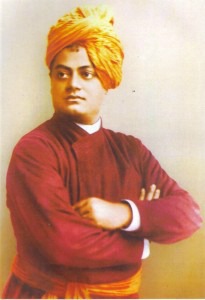
“Education is the manifestation of the perfection already in man – Swami Vivakananda”
Sometime back I wrote about Abraham Lincoln’s letter to his son’s school teacher and my perspective and how it was appropriate for our lives here too. To bring up a good human being and to help him/her learn and get educated is the role of the parent and also the teacher at school.
Well, there were these competitions going on in my seven year old son’s school again, here, in India. This time it was Western Music. I am so fond of these musicals. My son sang some of my favorites and then Que Sara Sara and Rudolph the red nosed reindeer. He continued to the preliminaries, quarter finals, semi-finals and the finals. But one day while preparing for the finals at home, my son suddenly said, “Not all are going to win.”
I said, “Yes, they are not. But if you want to win, you need to practise.”
He was not the type of person who was interested to sing, but the type who loved to listen to music and songs. And I discovered this during this time.
“But amma, I don’t care.”
“Well, you should do your best. And then if you don’t get to win, that is fine. But you should not just give up.”
“I am not giving up. I just don’t want to sing.”
“Oh?”
Well, I was at a loss of words. I did not want him to do something he did not want to do. But then we were already into the finals, and I thought was it not a sheer waste if he did not even participate? This got me thinking…
The next day I found this quote in his school’s website.
Education is the manifestation of the perfection already in man – Swami Vivakananda.
We send our children to school for education and the teachers and parents are loving and affectionate and try to encourage the children to imbibe knowledge.
But then, what do they actually learn? Only what they chose to!
And also, sometimes they don’t learn and at other times they are very smart in academics. They also indulge in sports and other extra-curricular activities. We are happy, sometimes sad, and at times indifferent to various achievements, successes and failures and mediocre performances of our children. So many choices, actions, results, and yet Swami Vivekananda says we are all perfect.
If everyone is perfect, then where are the gaps? Why do only some people win? Why are there so many differences and scales of grades? ‘Manifestation’ is the significant word. What manifests out of a child is important. And whatever manifests, the society, the parents and the teachers are responsible to some extent. And then the children themselves are finally responsible. We bring up a child, giving him a lot of room to explore, think, discover and find joy, and, thereby, allow him to manifest his perfection.
I did not ask him to practise a lot for the singing competition. If he is not interested, let him not be. Maybe he is interested in building robots. Maybe he is interested in literary pursuits. Maybe he is interested in astronomy when he points out the pole star and Venus.
Because he is talented to sing, does not mean he should want to do it or become the next pop star. Whatever he allows to be manifested from himself, only will be, and I cannot force it.
And the reason for what he focuses on, no one can understand. It is his own mind acting under his own will and there are no explanations for that. So, let me not put a restraint to the manifestation of his perfection. Let him lay down his own options and channel his own interests.
In the end, he did end up participating in the finals, but without practising and the results are not out! But I shouldn’t care about the results because he doesn’t, right?
Is your child exercising independence in what he wants to do in life and what he wants to achieve? If so, are they different from what you think? And how do you handle it?
This is an original post to World Moms Blog by Purnima, our Indian mother writing from Chennai, India. Her contributions to the World Moms Blog can be found here. She also rambles at The Alchemist’s Blog.
Photo credit to Wiki Media Commons.
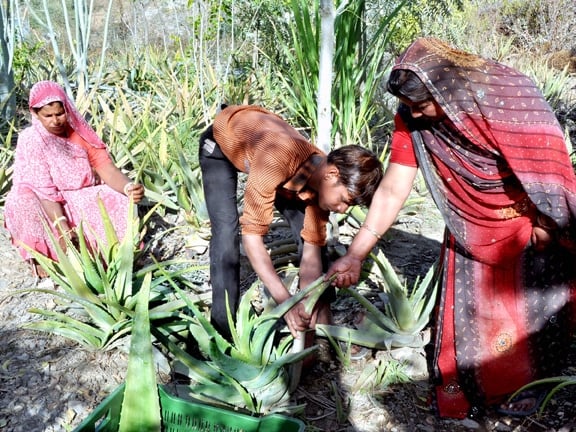
by Purnima Ramakrishnan | Jul 23, 2013 | Casting a Wider Net, Economy, Education, Feminism, Government, Human Rights, Humanity, India, Inspirational, International, Motherhood, Nature, Purnima, Social Good, The Alchemist, United Nations, Women's Rights, World Moms Blog, World Voice
A couple of weeks ago, we featured a remote village, Piplantri (Western India) on the Gates Foundation. Piplantri is a model village, whose actions of change have been very well received all over India.

Aloe Vera products from the small scale industries
They plant 111 trees for every girl child who is born, create a fixed deposit of INR 31,000 (approx. USD 620) in her name which attains maturity when she is 18 years old and chalk up a legal agreement between the parents of the girl child and the government that they won’t get their girls married off before she is 18 years old. They also have Aloe Vera industries in which the women of the village are employed. So they have achieved MDGs #3 (promote gender equality and empower women), #4 (reduce child mortality), and #7 (ensure environmental sustainability) at one go. Today on the blog, I would like to introduce Mr. Shyam Sundar Paliwal and his wife, Anita, who were the pioneers of this change action in their village. Anita is 42 years old, and she got married after she finished her 12th grade. It was an arranged marriage and the couple were happy.
Their first daughter Kiran was 18 years old when she passed away. She died due to dehydration. That was the turning point in their life, and they vowed to make lives of others happy.
They also have another daughter Hemanshi (22) and a son Rahul (15) who is in 10th grade. Hemanshi is married and has a child, too.
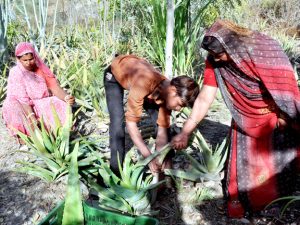
The women of the village tending Aloe Vera
Anita recalls that when she came to her in-laws place after she got married, the first lesson she received from her father-in-law was to plant banana saplings such that they bear fruits during the rainy season and then plant mango saplings around the banana trees. Banana trees absorb water during the monsoon and transfers this water to the mango trees through its roots during the arid summer season. She says she has stuck to this piece of advice to date in her village and ensured that her villagers follow such age-old farming wisdom.
Anita, who is the wife of the ex-sarpanch (ruling political head) of the village, Piplantri, is a very active community member. She is a Zila Parishad Member (Elected person of the district council). Her husband has always been supportive of her as a woman and wants her to do her best for her villagers. He has never restricted her in any way. Though she is more educated than him, he has never been jealous of her, but has only encouraged her and furthered her growth and development as an active member of their society and community. She says, if only all women of the world gets a husband like Shyam, the women of the world will be better off and we would not be speaking of women’s rights here.
Shyam Sundar won the panchayat elections in 2005 and he says he first wanted the people who worked in the government offices to be comfortable. He installed the first AC in the office, brought in some comfortable furniture and ensured that people in all echelons of the society were treated equally. (In rural India, at times, the upper caste people are given more respect and sit on chairs, whereas the lower caste people are treated shabbily and sit down on the floor. Read more about the Evils of Caste system in India here). He said, he worked on the psychology of the ruling body to make them happy and comfortable. He says, only if they are happy, they would start working on reform measures and help provide for the remaining villagers. He, at his own expense, made the offices a comfortable place to work and conducive to provide better results.
He started small. In this difficult water shortage era, he diverted the waste water from all houses/offices towards the fields. Better water conservation was ensured. If waste water does not stagnate anywhere, there would be no mosquitoes and no dengue and fewer diseases. So, he solved primarily problems with simple, cost-effective solutions.
He installed drinking RO water systems in schools. Brought in furniture for the students and made the public schools better than the expensive private schools. People started flocking towards government schools. He raised awareness slowly and in a small way, which evolved out.
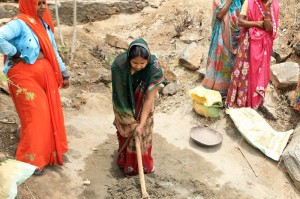
Mrs. Anita Paliwal working on the Water Harvesting Structure
He started rain water harvesting with the help of government. He built canals. He used the women of the village who were unemployed. To the left is a picture of Anita, who at times does not hesitate to get into the fields with a mean sickle. She and her husband were instrumental in starting the water harvesting structure of the village. In most of his welfare activities 90% of the employed are women and 10% alone are men. Women of the village have been blessed indeed to have him there, says Anita. In addition to 25,00,000 Aloe Vera plants, there are 10,000 rose shrubs which are also used in small-scale industries for toiletries and medicinal supplements. Women are employed in all of these schemes.
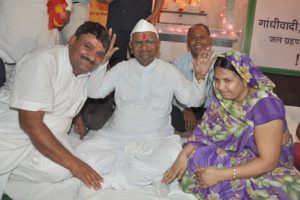
Mr. Shyan Sundar Paliwal and Mrs. Anita Paliwal with Anna Hazare
He started the Kiran Nidhi Yojna with the 76-year-old International Social Activist, Anna Hazare to ensure that no girl child is married off before 18 years old. This man who himself did not study in a college, ensures that all girl children in his village get a college degree. He also nudges the parents to get their girls married off in collective wedding, so that money is conserved and better utilised for other public welfare schemes or for their own savings. This scheme also granted government land to the parents in return for planting 111 trees on the birth of their daughter in that land, and tending to it to fruition before their girl child is 18 years old. On the death of any community member, the family is requested to plant trees again.
He says this again works on their psychology. The girl children treat the trees as their own brothers and sisters. After all, the saplings were planted on the day of their birth. And the parents get emotionally attached to the trees which came into existence on the day their family member was born or died. They then take care of it as a family member, and would under no means cut it down. He says, it is all in the hearts of the people. If people get involved with their hearts, anything is possible. He made people to get emotionally attached to nature and trees and the earth.
I learnt something new from Anita and Shyam that day – Ecofeminism. It is such a beautiful concept. Women and nature have been connected since time immemorial and this couple have harnessed it.
After all, he who was not highly educated could work on such things and make that beautiful village into a heaven, he says, the whole world could change too. And we would have no need to talk about the MDGs or uplifting of any downtrodden society/community.
When asked how he felt when his village was showcased by the Gates Foundation on their Blog, he gushed with happiness and pride. The district collector and Panchayat officials were so excited, too, he said. But his only complaint was that he could not get a hard copy of the magazine which he could show his villagers. He is so proud like a father, like the father of the heaven he created.
He also invites donation to his Kiran Yojna Scheme for the fixed deposit of INR 31000 of every girl child born in his village. He invites the contributors, readers and fans of World Moms Blog to make a trip to Piplantri. He wants people to embrace such change and for them to build upon it to suit their own society, and community.
This is an original post to World Moms Blog by Purnima, our Indian mother writing from Chennai, India. Her contributions to the World Moms Blog can be found here. She also rambles at The Alchemist’s Blog.
Photo credit to Piplantri.com
What do you think about the traditions put in place to support girls and women in the community of Piplantri?


























